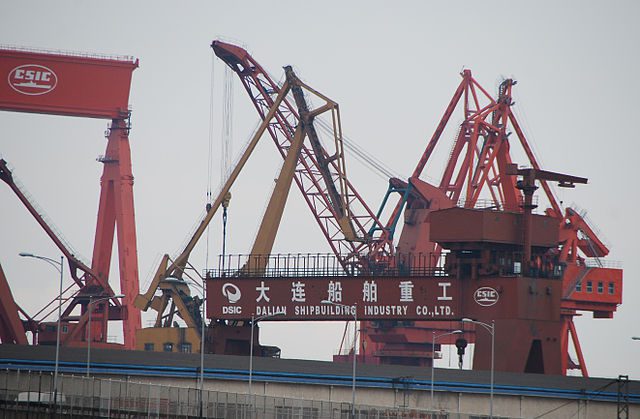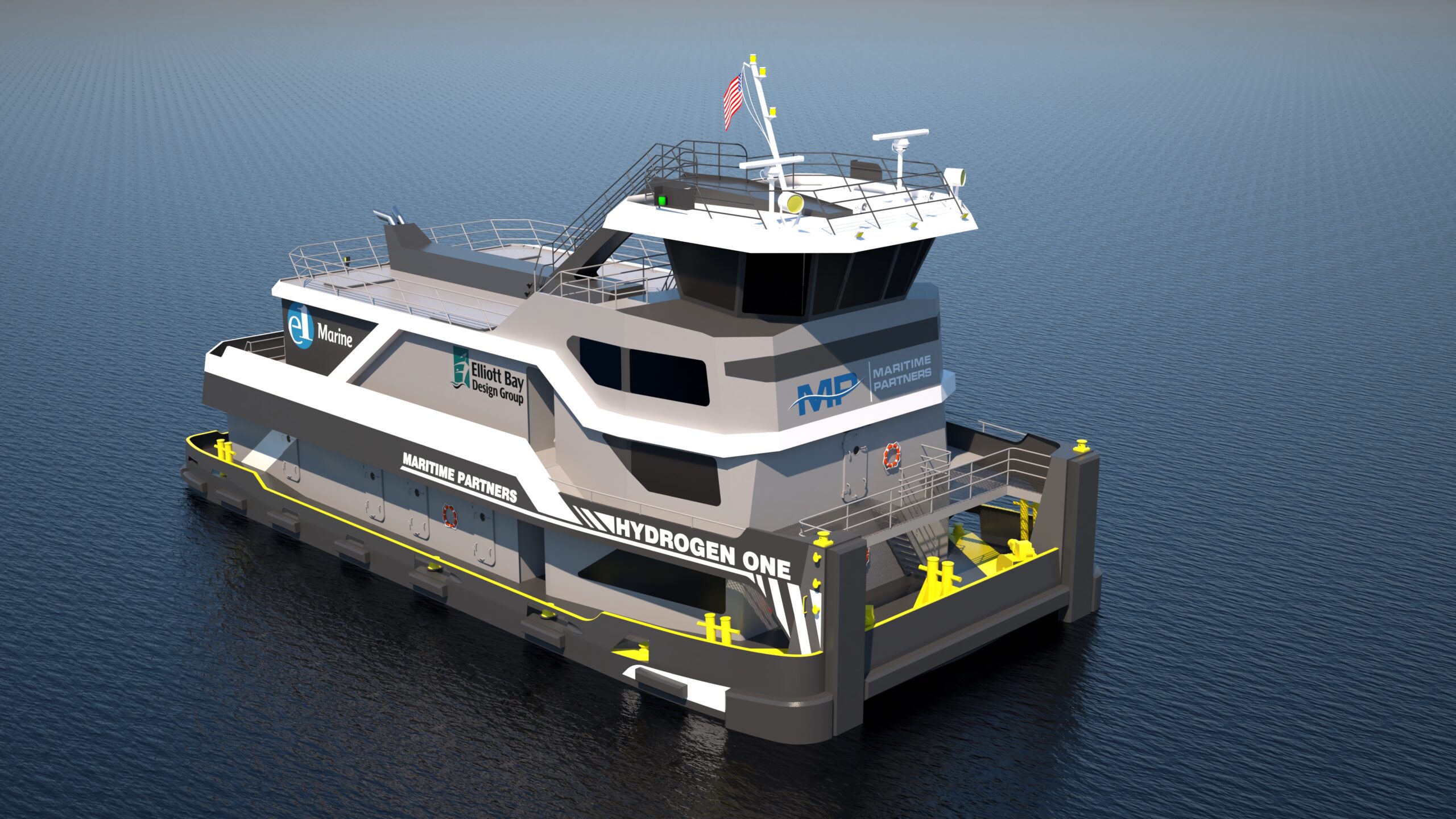Dalian Shipbuilding, image: Yoshi Canopus
 By Rujun Shen and Ruby Lian
By Rujun Shen and Ruby Lian
SINGAPORE/SHANGHAI, July 23 (Reuters) – Banks have tightened lending to Chinese shipyards, putting more pressure on an industry that is already suffering from sluggish demand and a supply glut, as Beijing tries to cut excess capacity across a range of sectors.
The financing squeeze is set to hit less established yards, but could strengthen bigger players such as Yangzijiang Shipbuilding Holdings and South Korean rivals.
Some banks have started asking for more prudent ship construction contracts before they grant loans and have withdrawn loan approval rights given previously to branches, industry and banking sources told Reuters.
They are asking the yards to get clients to put upfront payments of at least 15 percent now in order to get loans, said an executive at a large Chinese shipyard, who did not want to be identified as he was not authorised to speak to the media. Some yards had offered generous terms to shippers, requiring payments upfront of as low as 1 percent.
In some cases the banks are also cutting credit lines and moving to recover outstanding loans, said the China Association of the National Shipbuilding Industry.
“As the shipbuilding market remains depressed, banks and other financial institutions have listed shipbuilding as a key industry for credit control,” the association said in a comment on its website posted on July 18. (www.cansi.org.cn)
An executive at a private shipyard in eastern China said banks had demanded yards charge as much as 30 percent in upfront payments from their clients. State-owned shipbuilders, though, could get easier credit terms, the executive added.
The bank measures come as China’s cabinet said this month it would cut off credit to force consolidation in industries plagued with overcapacity. This was shortly after China Rongsheng Heavy Industries Group, the country’s largest private shipbuilder, fell into financial turmoil.
Beijing did not specify then the industries it had in mind, though in 2009 it named nine, including shipbuilding. Industry sources said neither the banking regulator nor any central government agency had issued new rules on tightening lending to shipyards or other industries.
China rivals South Korea as the world’s top shipbuilder, though the ships built in China are mostly of lower value and less complex technologically. This has forced Chinese yards to compete on price and financing terms for orders that have slowed to a trickle since the global financial crisis.
At the end of May, the orderbook of Chinese yards stood at $68.5 billion, second to South Korea’s $102.5 billion, even though China’s orderbook in tonnage terms exceeded South Korea’s, data from Clarkson Research Services Limited showed.
“The goal is to gradually cut down the credit but not to kill all of them at one go,” said a banking source, who did not want to be named due to the sensitivity of the matter. “As the economy is not doing well, banks aren’t willing to lend as much anyway.”
The size of outstanding loans at shipyards is unclear, but many banks are involved in handing out these loans, including top commercial banks such as Industrial and Commercial Bank of China (ICBC), China Construction Bank, Agricultural Bank of China, Bank of China Ltd and Bank of Communications.
ICBC declined to comment on lending to shipyards when contacted by Reuters. Other banks could not be reached immediately.
DELAYED PAYMENTS TO STAFF, SUPPLIERS
Total profit from the 1,647 Chinese shipyards whose core business revenue exceeded 20 million yuan slumped 29.1 percent on the year to 28.8 billion yuan ($4.69 billion) in the first 11 months of 2012, according to industry association data.
“Affected by banks’ restriction on loans, shipyards are facing tight working capital and difficulty in purchasing raw materials and equipment, which results in increasing phenomenon of delayed payment to suppliers and staff,” the association said.
But the Export-Import Bank of China, a policy bank and an active player in shipping finance, said it had not changed its criteria for funding ship construction recently.
“We will continue to support qualified clients,” said Chen Bin, deputy general manager of the bank’s transport finance department.
Ex-Im Bank had about $13 billion in outstanding shipping loans in May, up 30 percent from the end of 2011, Chen said earlier this year.
Despite China Rongsheng’s troubles, large and financially sound yards in China, as well as yards with a good track record outside China, are expected to benefit, analysts said.
“It depends on the conditions at your shipyard. Well-run companies don’t have any problem,” said Ren Yuanlin, chairman of Yangzijiang Shipbuilding, when asked if the company has facing tightening credit.
Singapore-listed Yangzijiang has won new orders worth $1 billion so far this year. ($1 = 6.1413 Chinese yuan) (Editing by Muralikumar Anantharaman)
(c) 2013 Thomson Reuters

 Join The Club
Join The Club











